I learned so much! Using sports as a lens to teach history, “not just a moment, a movement,” and all these athletes I haven’t heard of.
Mr. Zirin’s knowledge was both encyclopedic and engaging: it is rare to encounter such a capable historical scholar who is also a brilliant storyteller. I am booked through June for these wonderful online forums.
The format was really excellent, very accessible. The breakout groups came at the right time and it was nice to engage more with a small group and then return to the large group for more conversation.
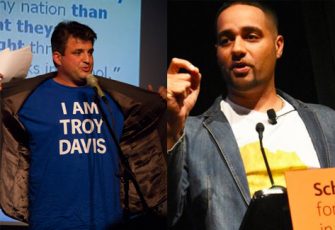 These are just a few comments from the more than 250 educators and students who participated in the People’s Historians Online mini-class on Black Athletes and the Black Freedom Struggle with Dave Zirin and Jesse Hagopian on May 15, 2020. On this page we offer session highlights, a video of the full session, resources recommended by the presenters and participants, and more participant reflections.
These are just a few comments from the more than 250 educators and students who participated in the People’s Historians Online mini-class on Black Athletes and the Black Freedom Struggle with Dave Zirin and Jesse Hagopian on May 15, 2020. On this page we offer session highlights, a video of the full session, resources recommended by the presenters and participants, and more participant reflections.
The talk is available as a podcast via The Nation, Black Athletes and the Civil Rights Movement.
Video
Video of the full event, except the breakout sessions.
Excerpts
4:11-4:50, Jesse Hagopian: I just wanted to start with a reflection about sports and education as a teacher because I think on the one hand sports saturate education right like uh they’re often the most visible part of any campus, any school; it’s what everybody rallies around. But, on the other hand, it seems to me that sports are often completely absent from the classroom. They’re not studied at all in the k-12 curriculum and I think it’s often seen as not a serious arena of study right and they’re generally excluded from history class, from English language arts, from science.
05:57-06:25, Dave Zirin: social scientists out there um I would make the case that it is impossible to give a rounded and full picture of the black freedom struggle and specifically the movements of direct action to desegregate the Jim Crow south without talking about sports sports is a part of the story and not just a part of the story in terms of oh you have a black athlete on the field and that changed people’s minds but I’m talking about like actual direct action to fight Jim Crow.
6:25-07:00, Zirin: In 1960, Wilma Rudolph, who became an Olympic superstar after becoming the first woman to win three gold track and field medals, she refused to have her parade or receptions in Clarksville Tennessee if they were segregated and this was actually the first instance of integration in the history of Clarksville, Tennessee. Not sit-ins like we saw in Greensboro so famously, although those would come to Clarksville, but the first time there was integration was because Wilma Rudolph stood up and said ‘No, you can’t celebrate me as an Olympian or as a champion or as an athlete and do it in the context of Jim Crow.’
07:04-07:19, Zirin: That happened in 1960; that’s when Wilma Rudolph did that, 1960. By 1966, six years, you have the end of legal segregation in sports in the Jim Crow south. In six years–that’s an amazing speed of progress!
07:49-08:20, Zirin: But when we just see sports as a reflection of the black freedom struggle as a reflection of the Civil Rights Movement, it erases those struggles large and small to integrate sports. And I really want to recommend this book right here by Lou Moore. It’s called We Will Win the Day: The Civil Rights Movement, the Black Athlete, and the Quest for Equality which is filled with all kinds of small stories that took place in small towns maybe some of us haven’t heard of in the south where sports was the impetus for desegregation and sports was the site of direct action.
09:24-10:33, Zirin: When it comes to sports, I would argue that there are two kinds of political athlete. You have the representative and you have the explicit. By representative athlete I mean athletes who change the world just by taking the field or by the court. Like think about Althea Gibson dominating the tennis world in that lily white country club sport and just by taking the tennis court she changed the world… by the explicit I’m talking about athletes who refused to play unless there were integrated accommodations. Or stands people who use their platform to speak out these are the forerunners of Colin Kaepernick, if you will, but all the people who use their hyper-exalted brought to you by sponsors platform to actually say, ‘Wait a minute, I’m not going to play in the city of Houston if there are segregated accommodations. I’m not going to do that.’ And then actually the city of Houston changes its local ordinances to host these games. That’s an untold story of the black freedom struggle and it’s very exciting because it shows that culture which I think sports is a part of is a key motivator and key lever for social change.
14:01-14:25, Zirin: I love that athletes connect with that that history of sports and struggle. I love that so much because as someone who is an athlete myself, you’re sort of brought up through the sports system to think that the only thing you should do is say ‘yes sir, ‘no sir,’ or ‘yes ma’am’ and ‘no ma’am’ to your Coach and that’s the extent of what you’re about to say or what you’re allowed to do. So, sports is seen as antithetical to politics when there’s this whole rich tradition that says otherwise.
15:42-16:34, Zirin: Yeah, there are so many Jackie Robinsons uh and that to speak about Jackie Robinson as one person does a disservice to the many twists and turns he took in his own intellectual and political life. Martin Luther King called Jackie Robinson ‘a sitting here before sit-ins, a freedom rider before freedom rides’ and I think that’s a good starting point for Jackie Robinson in that he comes into major league baseball as a WWII veteran and as for many people and for many black Americans this symbol of hope that after WWII where the entire country was marshaled to defeat fascist countries in Nazi Germany that we were reaching towards a place that was going to be less racist going forward and where the constitution and its ideals of life liberty pursuit of happiness would be open for everybody and Jackie Robinson was going to be the symbol for that going forward.
23:53-25:34, Zirin: I think when we talk about Muhammad Ali too much, it’s like it can be almost disempowering because we speak about him as if he lived on the planet awesome or something and then was brought uh to the United States to show us all the way as if he emerged full you know like Athena out of the head of Zeus ready to tell us all what to do when the reality is quite different.
I mean, when he was you know Cassius Marcellus Clay, Jr. from Louisville, Kentucky. When he wins the gold medal at 18 in 1960, he you know said that you know his hero was a gorgeous George Wagner who was a professional wrestler and that was his dream was to be this great boxer and to be a big talker like gorgeous George. And you know he would say things like after the Olympics he said, ‘To make America the greatest is my goal, so I beat a Russian and I beat a Pole, and for the USA won the medal of gold, and the Greek said you’re better than the Cassius of old.’ And he would say that and the press was Like, ‘oh look at him, he rhymes’ but so there was no political content to it, there was just this incredible amount of charisma and this love of professional wrestling and this idea of being a showman. But when he came back from the Olympics and this is the story that some some say never really happened, Ali and
his family say it did happen, but he goes into a restaurant with his gold medal around his neck and he’s refused service of a hamburger and then he took his medal and he threw it into the Ohio River and that set him on a path of trying to find answers of like you know, ‘I’m so pretty I’m so successful. I’ve got a gold medal. I should be the all-American boy, why aren’t I?’
31:56-32:34, Zirin: But Tommy Smith and John Carlos felt like they still had to do something. So, they got gloves, uh they uh got these buttons you can see on them that say ‘Olympic project for human rights.’ Uh they took off their shoes, you can’t see it in the picture but they’re not wearing shoes um because as a showcase of black poverty in the United States. And they have this and they’re wearing beads around their necks to show the history of lynching and violence against black people in the United States and they have this whole plan to and this is where you really get to something amazing but because before they could actually institute their plan, what did they have to do, they had to get on the medal stand.
Audio
Listen to the recording of the session on these additional platforms.
Resources
Here are many of the resources recommended by the presenters and also by participants in the chat box.
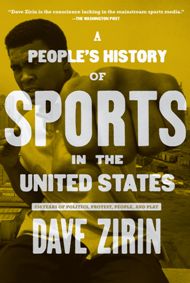 |
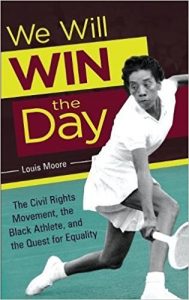 |
BooksA People’s History of Sports in the United States by Dave Zirin We Will Win the Day: The Civil Rights Movement, the Black Athlete, and the Quest for Equality by Louis Moore Many more books were recommended by the speakers and in the chat box. Those titles and more are on the Social Justice Books K-12+ booklist on sports. |
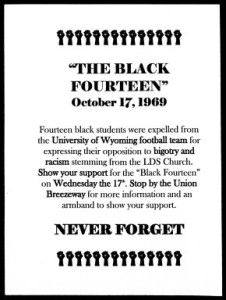 |
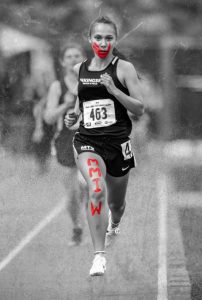 |
ArticlesHidden History of Strikes and Other Protests in College Sports by Dave Zirin Indigenous Runners Rosalie Fish and Jordan Marie Daniel Run for Their People by Eilís O’Neill on WBUR Sixty Years Ago She Refused to Stand for the Anthem: Before Colin Kaepernick kneeled, high jumper Rose Robinson defied tradition at the Pan American Games by Amira Rose Davis Student Athletes Kneel to Level the Playing Field by Jesse Hagopian in Rethinking Schools Maya Moore Left Basketball. A Prisoner Needed Her Help in New York Times WNBA Star Maya Moore Helped Overturn His Conviction in New York Times |
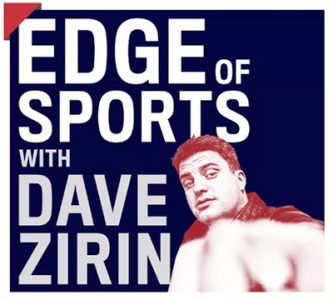 |
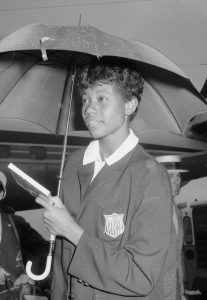 |
PodcastsEdge of Sports Where sports and politics collide, a weekly (Tuesdays) show hosted by Nation magazine sports editor Dave Zirin. On the Shoulders of Giants An episode of Throughline on the heavyweight boxer Jack Johnson, the sprinter Wilma Rudolph (in photo), and the basketball player Mahmoud Abdul-Rauf. |
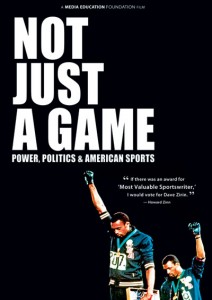 |
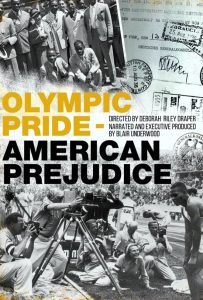 |
FilmsSee trailers of first three films further below. Not Just a Game: Power, Politics & American Sports by Dave Zirin Olympic Pride, American Prejudice directed by Deborah Riley Draper The Trials of Muhammad Ali by Bill Siegel The Mask You Live In by Jennifer Siebel Newsom What’s My Name | Muhammad Ali by Antoine Fuqua |
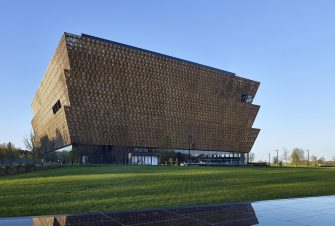 |
MuseumNational Museum of African American History and Culture (NMAAHC) The museum has an extensive permanent exhibit on sports in U.S. history called Leveling the Playing Field. |
|
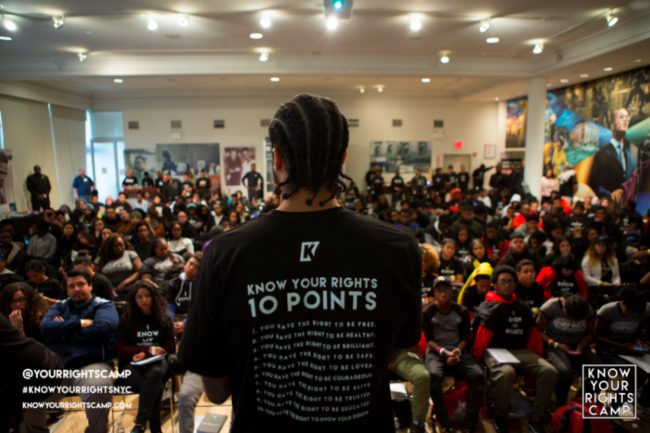 |
OrganizationsAthletes as Leaders A program for high school athletes on girls’ sports teams to empower student athletes to take an active role in promoting healthy relationships and ending sexual violence.
Athletes for Impact Providing a global network of athletes committed to equity and social change with the knowledge and information that they need to make informed decisions. Coaching Boys Into Men A prevention program for high school coaches on how to teach young male athletes healthy relationship skills and that violence never equals strength. Positive Coaching Alliance An organization dedicated to creating a positive, character-building youth sports environment. Set the Expectation Combating sexual and physical violence through education and direct engagement with coaches, young men and boys in high school, collegiate, and professional athletic programs. The Undefeated Online platform for exploring the intersections of race, sports, and culture. |
|
Film Clips
Not Just a Game
The Trials of Muhammad Ali
Participant Reflections
Here are some of the responses by participants from the session evaluation.
What was learned.
I would never consider myself a “sports” person and I was even a little hesitant in dropping into this specific session because. . . I don’t really like sports. I know that I’ve downplayed athletes and sports as important, but I’m walking away with books to read and an interest in how social justice movements work through and with athletes.
I appreciated learning about the women athletes who have resisted — I only knew Althea Gibson.
I really enjoyed hearing more about Robinson, Ali, and Tommy/John and the impact their activism had and continues to have. I will certainly feature these players/stories more heavily in my curriculum.
Everything was excellent and well-presented. David Zirin — yes! I like the idea of using sports as a frame for teaching history. So much is not known.
I learned so many names that I had never heard before. I hopefully will use this new knowledge to hook students who wouldn’t normally be interested in history. I also hope not to teach these athletes as individuals, but as important parts of a larger movement.
I wrote down tons of names to research more, and really appreciate ideas for framing sports history and culture, and transforming our patriarchal culture… wow! I will be incorporating as much as I can into new distance learning and hybrid learning units for the near future!
So many anecdotes, quotes, details, fascinating tidbits that drew me in and will draw my students in . . . . I want my students to see the connection between these amazing athletes and the broader movement they were a part of and how their actions on/off the field are hugely impactful to the larger civil rights movement.
Feeling a sense of permission to really explore this topic in my U.S. history class more than I have been.
So many great stories! I loved hearing about Muhammad Ali throwing his gold medal in the river. I enjoyed the discussion about the different ways black athletes have used their platform to advocate for change.
Oh my goodness. ALL of this is amazing!! My mind was blown on how much I just learned. Integrating sports into the curriculum is a very smart way to teach about labor movements and social justice issues. Connecting all these social justice pioneers to current events is so beneficial to understanding patterns in history.
There is a complexity of the human spirit and human experience that underlies sports.
Teach history — World and U.S. — through the lens of sports. It is also good to look at sports through the lens of capitalism and workers.
That there will be a Kaep award in the NFL is reminiscent of the ways in which people lie about their support for Ali and revulsion about the Vietnam War. My students will love it.
There were so many important stories shared today! The story about Wilma Rudolf really moved me and I’d never heard of Wyomia Tyus. Just having access to her name has shifted my understanding of the ways in which sports culture has shift race and gender relations in the United States.
Curt Flood Rule, Tiger Belles, all the Black figures who are obscure and the way all of this history was unpacked. Just absolutely BEAUTIFUL and would LOVE another session on this one!
Like with so much history, the wealth of activity by many ordinary people resisting, struggling, organizing, standing on principle and honor, made this so much more exciting than just again mentioning the famous names.
The idea that teaching history through the frame of sports gives students a way to ground their understanding, and also serves as a hook, was a big takeaway. Also, the way that Paul Robeson and Wyomia Tyus both supported/refused to criticize, or actually supported other people in the movement even when faced with exclusion or criticism. Those two stories stood out as particularly powerful.
Just so many things — particularly the details about the Olympic Black Power fist moment — I had no idea the backstory, the details and care that went into it, the before and after, down to the beads and buttons they wore and what it all stood for.
Loved the image analysis of John Carlos and Tommie Smith. At the beginning of the year we teach a unit on the Constitution and tie this in with anthem protests. I cannot wait to share the protests from the 1960s to help add to the narrative.
Dave Zirin was really inspiring and his sharing of resources is amazing for me. I am not much a fan of sports, but any way I can connect to students and adults is invaluable.
The format.
As readers can see from the responses below, most (but not all) participants like the mix of speakers, breakout rooms, and the chat box.
I like the breakout sessions to hear what others are doing.
Better amount of time in the breakout sessions this week!
Especially liked being able to process with breakout groups
It worked because Zirin was able to pack in a tremendous amount of material in a short time.
Wish we had more time with Dave Zirin, but I liked the breakout.
It was great! My participant group was a little quiet and the facilitator really kept it going. It was also REALLY cool to have a high school student (I’m a teacher) in the group sharing their thoughts and ideas.
I know there are time limits but I really wish we had more time to speak in our breakout rooms.
More breakout time needed!
I don’t love breakout groups.
Great presentation and back and forth with Jesse and Dave! I thought everything was great! This might be the best one I’ve been to so far.
I really appreciate the format, both the main room and the breakout sessions; the people in my breakout rooms are so inspiring and creative.
The format was great. I really enjoyed the break out session and the conversation between Jesse and David was fantastic.
Liked large and small sessions.
Would rather have listened to Dave Zirin instead of going to a breakout room. The breakout would have been better if people from similar occupations would be grouped together.
Dave is such an amazing wealth of information and I felt like this could have easily been twice as long.
Obviously we could spend hours on these topics making . . . time stop?
I liked the breadth of information shared from both past and present. Great resources.
This was a fabulously informative session. Thank you. It also was nice to have a small breakout just to build relationship, have time to process, and then return for the final question.
I am not a big fan of the breakout rooms. I wanted to hear more from this speaker. It’s good to see what other educators are doing but maybe shorten the time. There is a lot of awkward silence.
I loved it all. Particularly appreciated break out time to meet a small group of others interested in same matters. Although I had lived thru much of the history discussed re 1950’s, 60s, 70s, I learned new info.
You have the format just right.
Zirin is electric! His content knowledge, coupled with his enthusiasm, drew me in. The format was great as was the discussion in the break out group!
Of course, there needs to be a part two. I could listen to Dave drop knowledge for hours. Overall, the format is getting better and there was adequate time for the break out session.
All of the knowledge that Dave Zirin had, and the way he told it through stories, while making connections to broader themes, was awesome. I could have listened for a lot longer.
The format was really excellent, very accessible. I loved the whole group conversation, hearing dense/rich storytelling while simultaneously reading and engaging in dense/rich info-sharing in the chat . . . . The breakout groups came at the right time and it was nice to engage more with a small group and then return to the large group for more conversation. Perfect length as well.
Additional comments.
The conversation was incredible!
It’s easy to numb out to survive the stress during COVID-19. These workshops give me something to look forward and the learning and growing that takes place keeps me motivated as a learner and educator. Thank you!
Thanks, the conversation was incredible!
Jesse Hagopian is a national and regional treasure — so glad to have him in the Pacific Northwest!
Thanks so much for this! I just happened upon it via a Facebook post, and I’m so glad I jumped in.
Thank you! As usual, a highlight of my week!
I would love to have these weekly for the indefinite future even in the fall when we “go back to school” — THIS is the kind of engaging professional development I crave.
These have been amazing!! Thank you!!
Keep up the amazing work. Each week I am blown away at what I learn!
Presenters
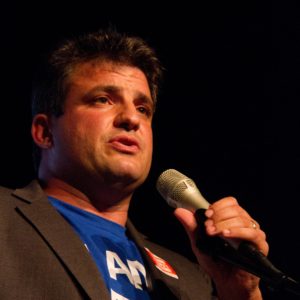 |
Dave Zirin is the sports editor for The Nation magazine and a frequent guest on Democracy Now! His books include Welcome to the Terrordome (Haymarket Books), A People’s History of Sports in the United States (New Press), and he is co-author of The John Carlos Story: The Sports Moment That Changed the World (Haymarket Books). He wrote the script for the film Not Just a Game: Power, Politics & American Sports. |
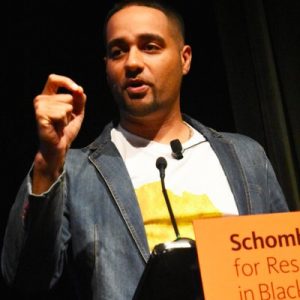 |
Jesse Hagopian teaches Ethnic Studies and is the co-adviser to the Black Student Union at Garfield High School in Seattle. He is an editor for Rethinking Schools, the co-editor of Teaching for Black Lives, and editor of More Than a Score: The New Uprising Against High-Stakes Testing. |






Twitter
Google plus
LinkedIn